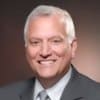
Jaime Parent, Associate CIO & VP of Information Services, Rush University Medical Center
One thing I have learned in this business over the last 30 years is that opportunities present themselves at a moment’s notice, and that the reactions to certain circumstances can have lasting effects, often times with little notice or fanfare.
During my rookie CIO days with Air Force Medical Service, I was presented with an opportunity that forced me to make a huge decision. I knew it was going to be a defining moment in my career. I received a phone call to see if I would be interested in being the clinical operations lead at Wilford Hall Medical Center in San Antonio, Texas. At that time, Wilford Hall was the largest medical center in the Air Force, complete with comprehensive inpatient and outpatient services, as well as an extensive academic and residency program. The job was to deploy the Department of Defense (DoD) EHR, while also leading the operation for the implementation of TRICARE, the DoD managed care plan. “Big Willy” was the mecca of Air Force medicine and would be a daunting assignment opportunity for me, a Major two years out from his Air Force CIO Internship Program.
I was at a career crossroads, and so I called upon my network of friends and colleagues seeking advice. The response was overwhelmingly negative. Wilford Hall had the reputation of being anything from elitist, to arrogant, and ultimately, a career killing machine. More complex than any other Air Force installation, Wilford Hall was its own medical wing, meaning that they commanded and controlled all information and communication systems, dwarfing the Lackland Air Force Base training facilities where the medical center resided. No one in their right mind would ever go there voluntarily. Pass on this one.
Having gathered all this negative data, I decided to make one last call. Colonel Al Obuchowski was CIO of the Air Force Medical Service and the head of the CIO fellowship I had completed two years earlier. Because he was an understandably busy man, I spent all of 30 minutes with him during my entire 10-month fellowship. I called “Col. O” late on an early Friday evening, knowing full well I would get his voicemail and a remote chance of a call back the following week.
To my amazement, the voice on the other end said, “Colonel Obuchowski.” Stunned, I almost hung up, but I quickly gathered my composure and introduced myself, to which he responded, “Jaime, how ya’ doin?” “Just fine, sir,” I replied nervously. “If you have a moment, there is something I would like to run by you.” I proceeded to tell him about the opportunity at Wilford Hall and waited for what I thought would be the anticipated response. Instead, I got the following.
Col. O: “Wilford Hall? Outstanding opportunity! You should jump on this!”
Me: “You’re kidding right, sir? All I have heard is that ‘Big Willy’ is negative — a lot of which I heard directly during your fellowship program.”
Col. O: “Forget about that, son. Look, go to Wilford Hall. Where else can you get the opportunity to see all of the advancements in technology [circa 1994] that the Air Force has to offer? Sure it’s a big leap. But you can do this, Jaime. You’ll work your butt off and drag yourself to the parking lot at the end of the day. It will be exhausting but it will be a good exhaustion, and you will learn and experience things there that you won’t find anywhere else.”
I hung up the phone confused and scared, but really excited. I ended up taking Col. O’s advice and spent three fabulous years at Wilford Hall. Then it was on to Walter Reed Army Medical Center and fast-forward to today at Rush University Medical Center, where I still apply the lessons learned at Wilford Hall.
About eight years ago, I ran into Col. O at HIMSS. Both retired civilians, we talked at great length about our lives and families. I took the opportunity to remind “Al” (which I now could call him) of that fateful phone conversation so many years ago. He blinked his eyes and smiled and said, “What conversation?” Incredulous, I spoke of the late Friday phone call where he said I’d work my butt off, and his smile got even larger. “Well, Jaime, I’m glad I was able to help you, but I must confess, I have no recollection of that phone call whatsoever. Are you sure it was me?” Now it was my turn to break into an even wider grin. Realizing that he truly did not remember the conversation not only upped the awesome, but made the encounter more endearing to me — and to him as well, despite his memory loss.
The lesson is simple. Leaders are always “on.” Even the most insignificant conversations or encounters can have a huge impact on someone, and, like Col. O, leaders may be oblivious to all of it while it is happening. That phone call meant everything to me, and obviously very little to Col Obuchowski, but the fact that he took the call showed incredible caring, insight and mentorship to a fledgling CIO when he needed it most. The fact that he forgot all about it makes the mentoring exchange even more meaningful to me. For even the briefest of mentoring moments change lives.


Share Your Thoughts
You must be logged in to post a comment.